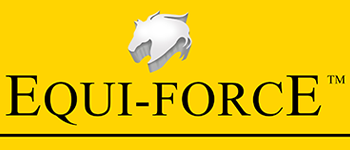Vitamin & Mineral Supplements – Beware of the “Kitchen Sink”
With hundreds of vitamin and mineral supplements on the market today it can be difficult in knowing what kind of vitamin/mineral supplement to feed and what type of situation warrants extra supplementation, as well as what products you should avoid.
Cases for Supplementation
Vitamin and mineral supplements are designed to provide additional fortification to the rations of horses enduring higher levels of stress. Situations that may warrant supplementation include:
- When poor quality forage is fed
- Growing horses
- Broodmares in late gestation and early lactation
- Correcting nutritional deficiencies
- Healing of bone and soft tissue injuries
- High levels of intense exercise
- Treating metabolic disorders
If you have a horse that fits into one of these categories, administering a proper vitamin/mineral supplement can be beneficial to the horse’s overall health and well-being. For example, supplementing higher levels of magnesium seems to help nervous horses that tend to have problems with tying-up. Many of these horses have low serum levels of magnesium and respond very positively when supplemented anywhere from 5-10 grams per day of additional magnesium. This type of situation calls for a very specific “supplement” requirement, and therefore it is extremely important to select a product designed to address this issue and not problems that the horse is not suffering from.
Use Caution when Supplementing
Another example of “disorder-specific supplementation” is the use of vitamin E and selenium which may be required in higher levels for certain muscle and/or neurological problems. Caution must be taken though when supplementing these and other types of vitamins/minerals because they can be toxic if over supplemented or fed incorrectly. Too much of one vitamin/mineral may also interact negatively with another vitamin/mineral. For example, if zinc levels are in excess of 700 ppm, it can interfere with copper utilization. If you are in doubt about how much of a certain vitamin or mineral you horse receives in his daily ration and if it should be increased or decreased in his ration be sure to consult an equine nutritionist.
Avoiding “Economic Excess”
While an excess of some vitamins and minerals can be dangerous to a horse, others are simply eliminated naturally. For example, supplemental B complex vitamins can be useful for the production of energy in the hard-working horse at times, and over supplementation of these water-soluble vitamins only cause the kidneys to do a bit extra work, as these are eliminated in the urine on a daily basis. While an excess of this vitamin may not hurt the horse, it does affect the bottom line of the business, and therefore should be discontinued!
Take Home Message
Care must be taken not to duplicate and overfeed vitamins and minerals when using supplements. In most cases, if the horse is healthy, fed a good quality pasture or forage in ample amounts, and receives additional fortification through the feeding of a concentrate formulated to meet its individual needs, extra vitamin and mineral supplementation is not generally needed.
If it is decided a horse needs additional supplementation above what it is receiving in the daily ration, be sure to read the tag and make sure that the supplement will provide what the horse is lacking and that the ingredients are biologically available (for example silicon dioxide is essentially “sand” and not a source of bioavailable silicon, whereas mono-silicic acid is). Try to steer clear of “kitchen sink” supplements or those that have a little bit of many nutrients in them but not enough of them to exert any significant effect.
This blog post was originally posted on Monday, February 6th, 2012 at Equine Nutrition and Health Services Blog. Blog article was re-posted with permission from blog owner, all rights reserved.
